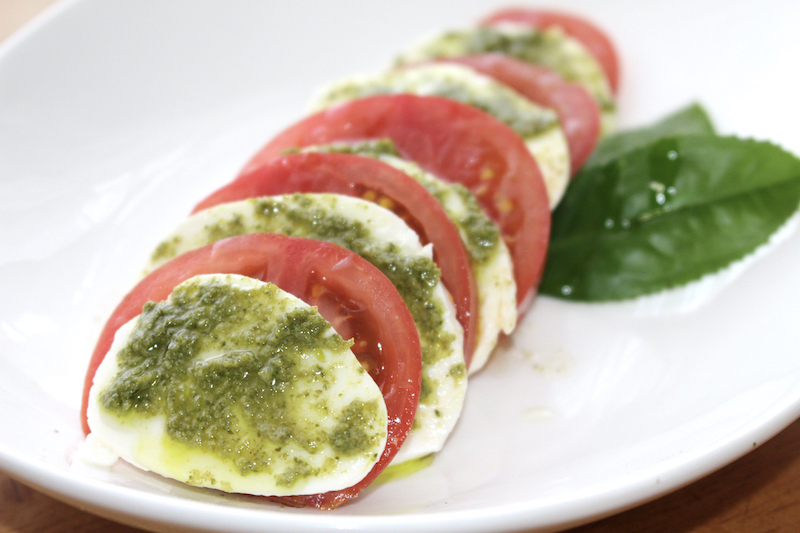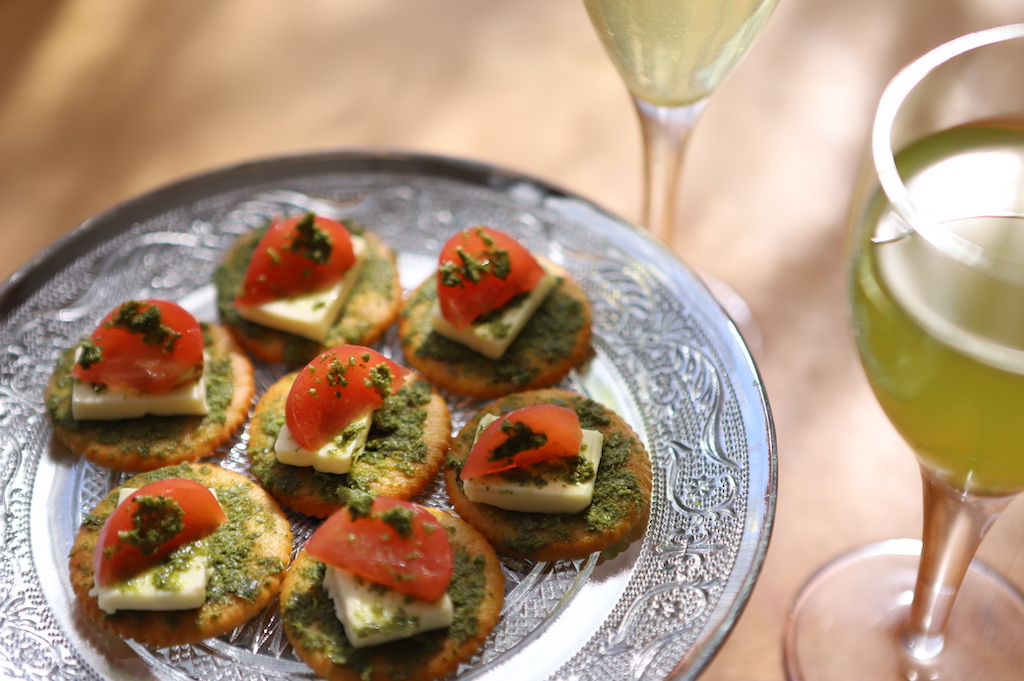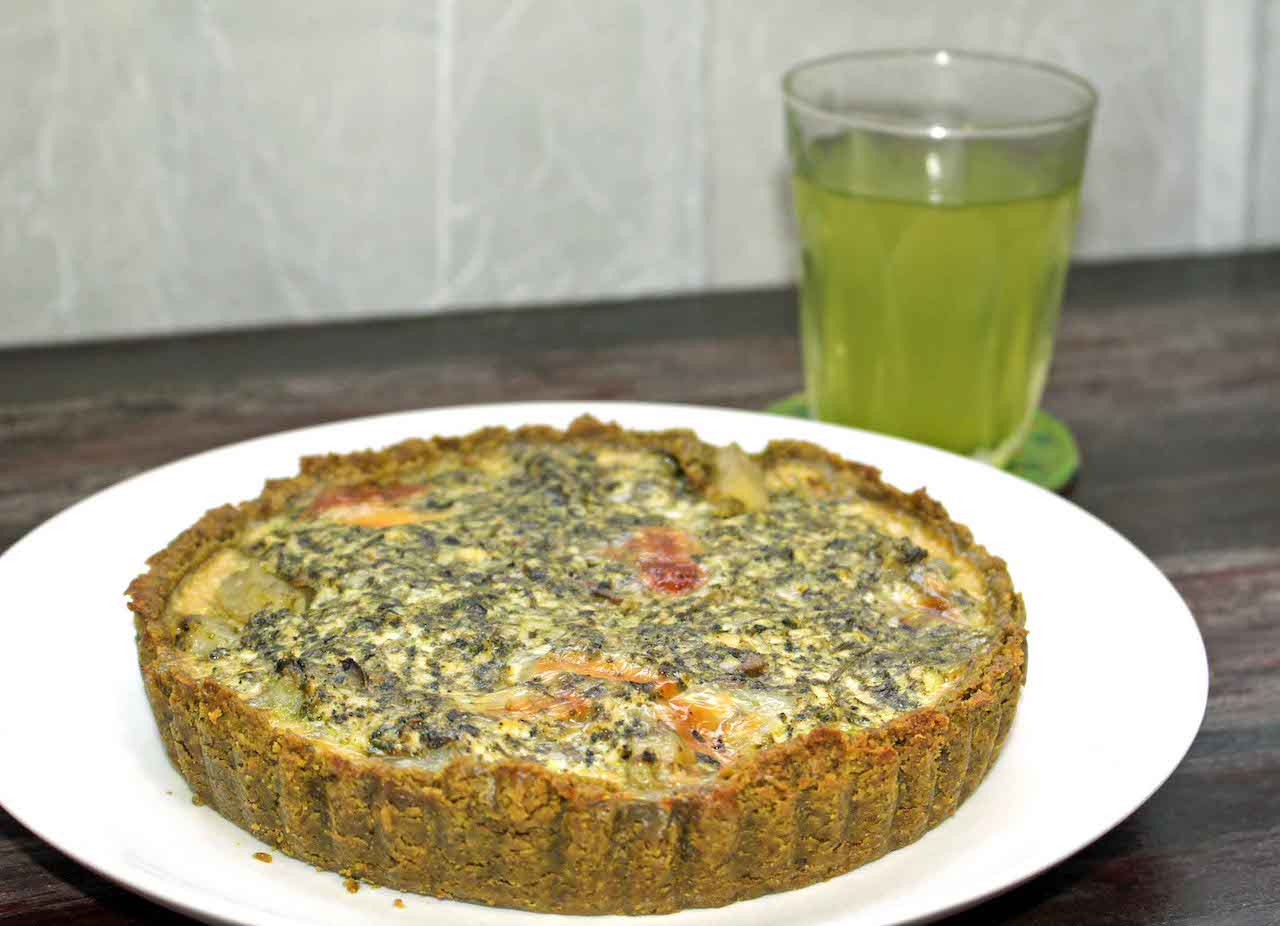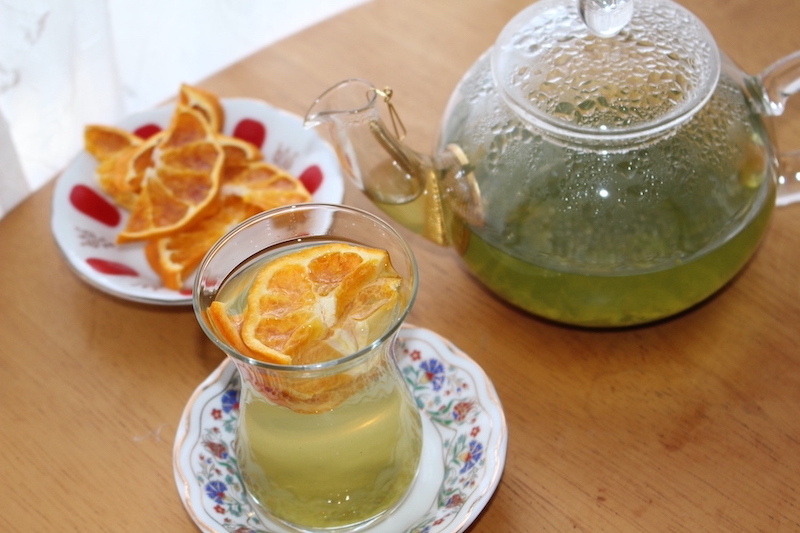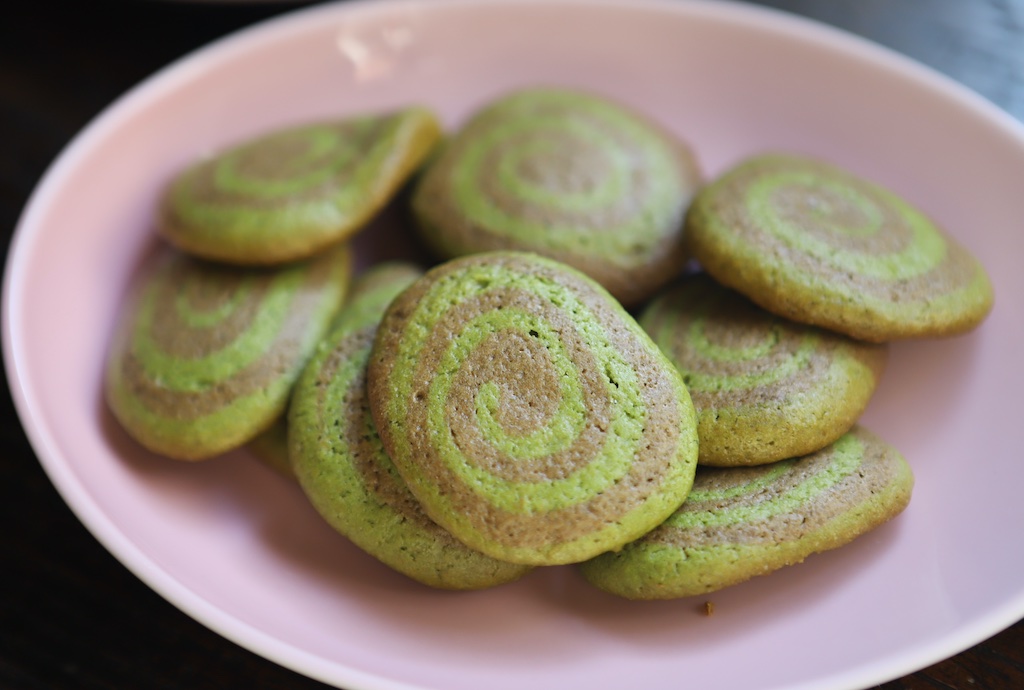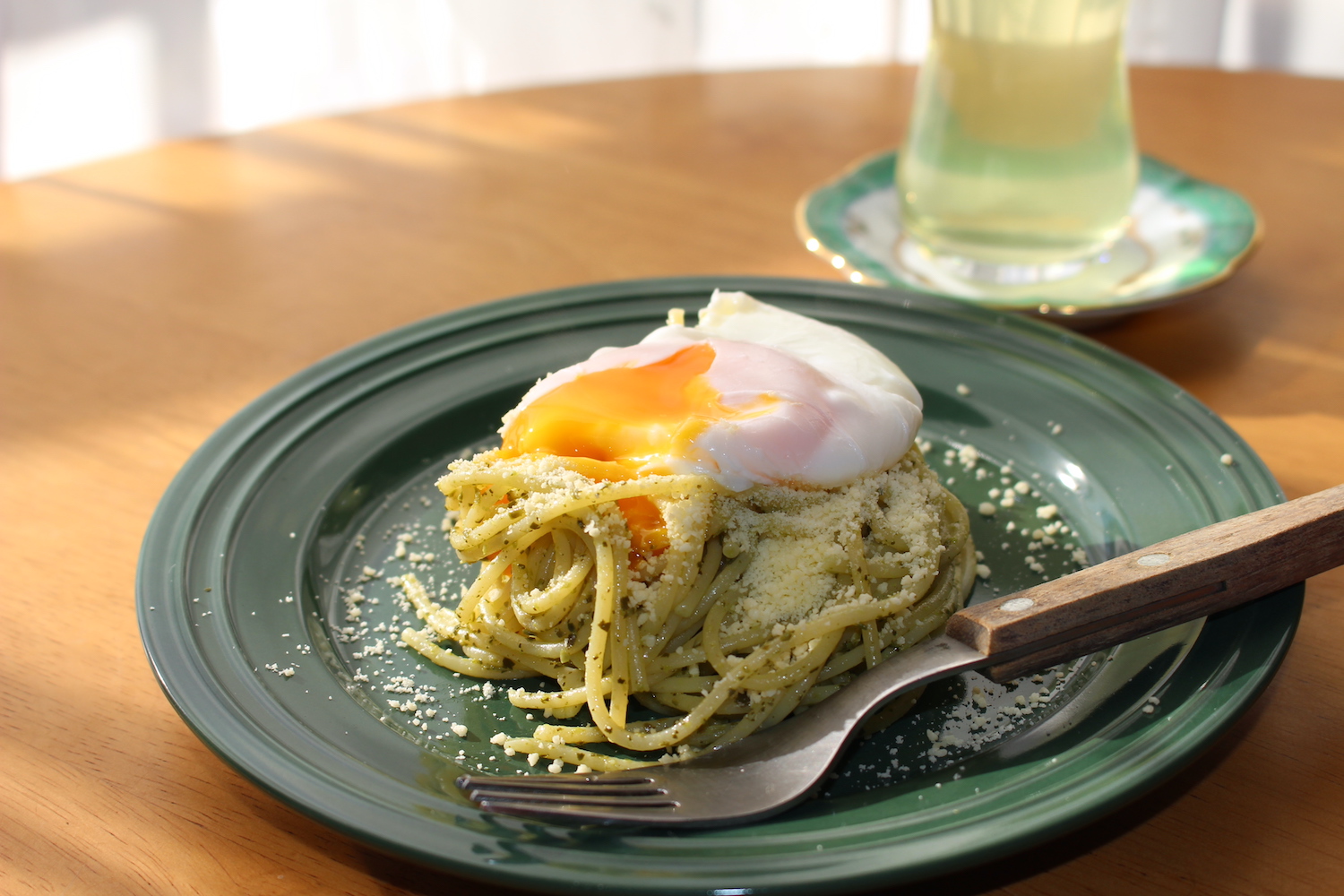
Tea Recipes
Tea leaf sauce
CHAMART
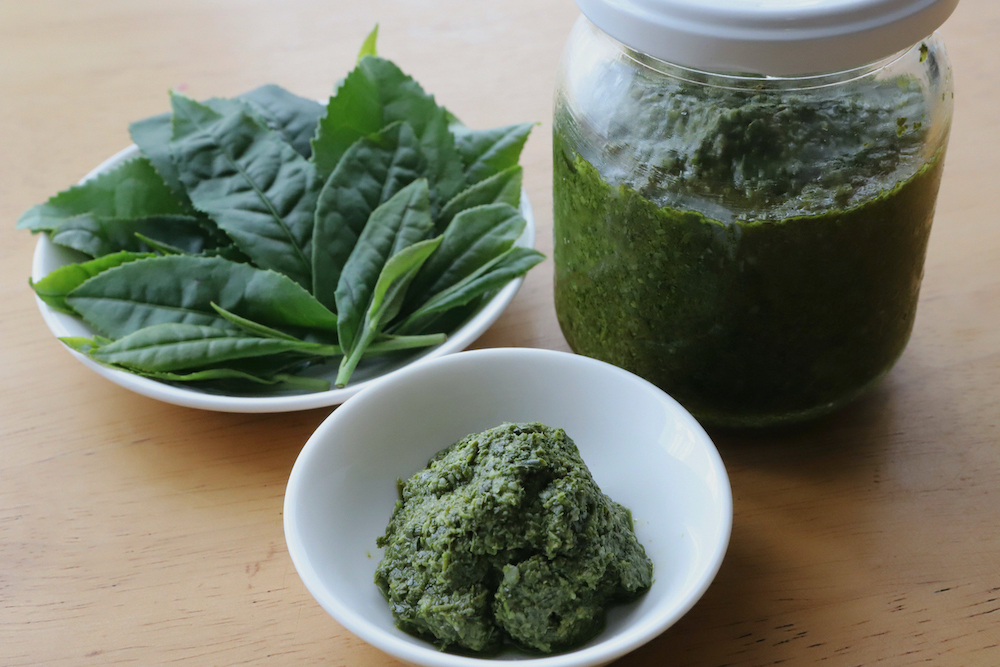
CHAMART introduces tea recipes, but this recipe has not been verified by a third party. Thus, please use the recipe as a reference.
Ingredients :
100g fresh tea leaves
120ml olive oil salad oil
6 cloves of garlic
8 to 10g salt
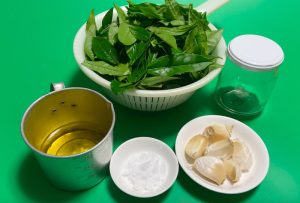
Method:
1. Wash the fresh tea leaves and blanch them in boiling water for 1 minute. (Blanching for more than 1 minute can cause the color of the tea leaves to change, affecting the final color of the sauce.)
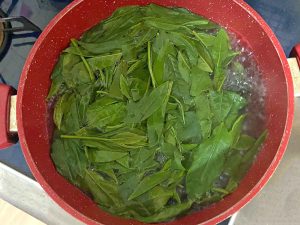
2. Drain the tea leaves in a colander and squeeze out excess water with your hands.
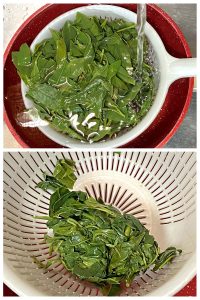 3. Finely chop the tea leaves with a knife.
3. Finely chop the tea leaves with a knife.
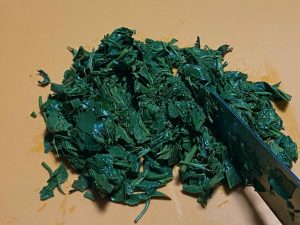
4. Finely chop the garlic with a knife.
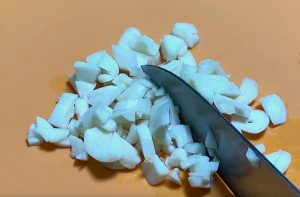
5. Place the chopped tea leaves, garlic, and olive oil (or salad oil) in a blender. Blend for a few minutes until it forms a paste.
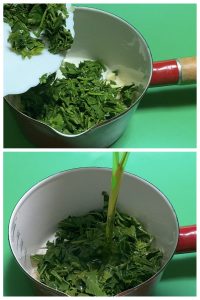 Occasionally stop the blender and stir the mixture with chopsticks or a spoon to ensure even blending.
Occasionally stop the blender and stir the mixture with chopsticks or a spoon to ensure even blending.
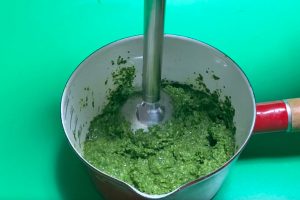
6. Transfer the tea leaf paste to a pan. Add the salt and cook over low heat, stirring with a wooden spoon. Heat for 8 to 10 minutes until the sauce is done.
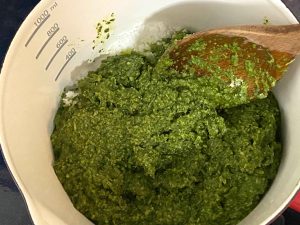 *Be sure to heat the tea leaf sauce. If you don’t, you’ll be eating raw garlic.
*Be sure to heat the tea leaf sauce. If you don’t, you’ll be eating raw garlic.
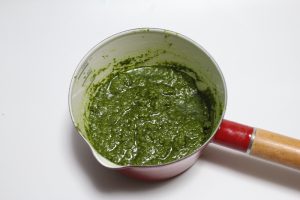
Freshly picked tea leaves can be stored in a plastic bag in the refrigerator (such as in the vegetable drawer) for 1-2 days without significant color change.
Storage Guidelines for CHAMART
1. To store tea leaf sauce, transfer it to a sterilized jar and use it within 1 week if kept in the refrigerator.
2. For freezer storage, thaw it in the refrigerator. Use it within 1-2 months if stored in the freezer.
However, if using over-matured leaves that have turned hard and dark green, the tea leaf sauce will be darker and more bitter than if made with new buds and leaves.

Related article on the site “Tea leaf sauce pasta with a poached egg“
*Tea leaves contain caffeine. The diuretic, stimulant and anticancer effects of caffeine intake are clinically recognized. On the other hand, excessive intake of caffeine may have a damaging effect on health. Especially, pregnant or breastfeeding women, and children should be careful with the amount of caffeine they intake.
Click here for information about “Daily Caffeine Consumption”.
Reference:
農林水産省 カフェインの過剰摂取について
https://www.maff.go.jp/index.html
公益社団法人日本茶業中央会(2013) 新版 茶の機能: ヒト試験から分かった新たな役割 第一刷 一般社団法人農山漁村文化協会
大森正司、阿南豊正、伊勢村護、加藤みゆき、滝口明子、中村羊一郎編(2017) 茶の事典 初版第一刷 朝倉書店
高野實、谷本陽蔵、富田勲、中川致之、岩浅潔、寺本益英、山田新市 (2005) 緑茶の事典 改訂3版 柴田書店
#tearecipe #usedtealeaves #ecocooking



